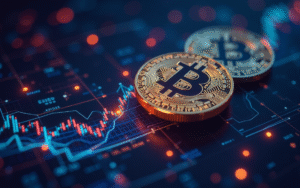Robinhood will end support for 3 tokens named in SEC lawsuits

Cryptocurrency and stock trading app Robinhood announced it will be ending support for Cardano, Polygon and Solana — all tokens labeled as unregistered securities by the United States Securities and Exchange Commission (SEC) in its recent legal actions against crypto exchanges Binance and Coinbase.
In a June 9 update, Robinhood said it will end support for the three tokens starting on June 27 following a review. In a Twitter thread, the firm specifically cited the SEC’s actions as reasons for the delisting, saying the Coinbase and Binance lawsuits “introduced a cloud of uncertainty” around the tokens — the only three in the cases that Robinhood supported.
“We believe in the future of crypto and will continue to advocate for regulatory clarity in the U.S. so that customers can participate in the marketplace with greater confidence,” said Robinhood.
Earlier this week, the SEC sued crypto companies Binance and Coinbase. The SEC has alleged that a number of cryptocurrencies trading on those platforms are unregistered securities, including three that are currently supported on Robinhood Crypto. (1/4)
— Robinhood (@RobinhoodApp) June 9, 2023
On June 5, the SEC filed a lawsuit against Binance for allegedly offering unregistered securities. The regulator followed with similar allegations against Coinbase — a U.S. crypto exchange — naming 13 tokens, including Cardano (ADA), Polygon (MATIC) and Solana (SOL) as unregistered securities.
Former SEC commissioner and Robinhood chief legal compliance and corporate affairs officer Dan Gallagher testified in a June 6 congressional hearing that the current approach to operating as a registered broker-dealer in the U.S. was like “crypto the hard way.” He added that the path laid out by the SEC for crypto firms was difficult to follow, even when Robinhood tried.
“When Chair [Gary] Gensler at the SEC in 2021 said, ‘Come in and register,’ we did,” said Gallagher. “We went through a 16-month process with the SEC staff trying to register a special purpose broker-dealer, and then we were pretty summarily told in March that that process was over and we would not see any fruits of that effort.”
Related: SEC lawsuits: 67 cryptocurrencies are now seen as securities by the SEC
The SEC cases have spurred outrage among many crypto users, who have pointed out inconsistencies in the regulator’s approach to handling digital asset firms. For example, the lawsuit against Coinbase alleged the exchange has been operating as an unregistered security broker since 2019, while the firm also went public in April 2021.
Binance.US and Binance CEO Changpeng Zhao were also named in the SEC’s cases against the crypto exchanges for their alleged roles in unregistered offers and sales of tokens, including BNB (BNB). The U.S. entity announced on June 8 it would be suspending U.S. dollar deposits in response to the SEC’s “extremely aggressive and intimidating tactics.”
Magazine: Crypto regulation: Does SEC Chair Gary Gensler have the final say?













